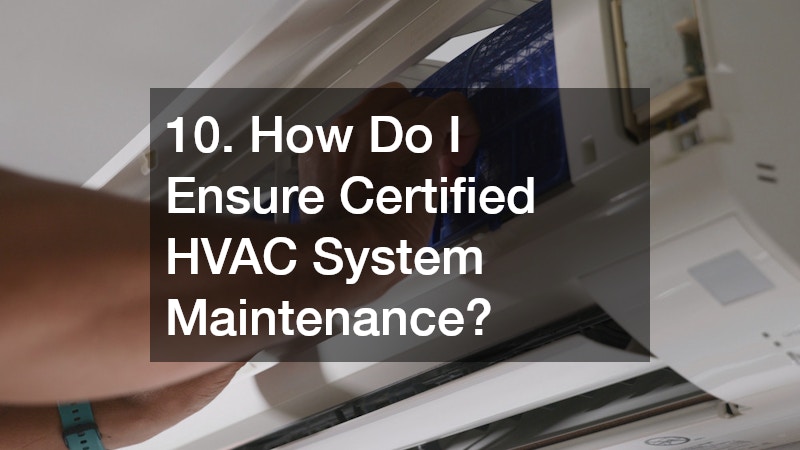As a new homeowner, navigating the world of home repairs can be daunting. This guide will provide you with certified home repair tips to tackle common challenges and maintain your home efficiently. Understanding the nuances of home repairs is key to not only enhancing the longevity of various installations but also to ensuring they are economical. Whether you are handling AC repair or roof repairs, having a basic understanding of certified home repair can save you time and money. The importance of quality maintenance cannot be overstated, as it directly correlates with the safety and comfort of your living space. This article will explore various aspects of home maintenance, from essential safety tips to budget-friendly strategies, ensuring you are equipped to make informed decisions as a homeowner.
In addition to understanding the basics, one of the most critical certified home repair tips is knowing when to call a professional. While DIY projects can be rewarding, certain tasks such as electrical wiring, plumbing repairs, and HVAC servicing require trained expertise to be completed safely and effectively. Attempting to fix these complex systems without proper knowledge can lead to further damage or even pose safety risks. Building a relationship with licensed contractors in your area ensures that you have reliable support when significant repairs are needed. Another tip is to create a seasonal home maintenance checklist. This proactive approach allows you to address small issues before they escalate into costly repairs. For instance, cleaning gutters in the fall prevents water damage, and servicing your furnace before winter improves efficiency and extends its life. Simple tasks like sealing windows and checking for leaks also contribute to long-term savings and comfort.
Investing in a home maintenance fund is another smart strategy. Setting aside a small amount each month prepares you for unexpected repairs and reduces the stress of sudden expenses. Many new homeowners underestimate the costs of upkeep, but being financially prepared helps avoid compromising on essential services. Lastly, don’t overlook the value of warranties and service plans. When purchasing appliances or new systems, always register your warranties and understand what coverage is offered. Some companies offer annual service plans that include inspections and discounted repairs, helping you stay ahead of maintenance needs without breaking the bank.
1. How Do I Start with Basic Certified Home Repairs?

Starting with certified home repair tasks requires a good foundation of knowledge and tools. AC repair is one common task that many homeowners face, particularly in warmer climates. Understanding the basics of your home HVAC system will allow you to perform preliminary assessments and potentially simpler repairs before consulting with a professional.
Certified home repair is about knowing when to act and when to observe. For instance, checking filters and vents regularly can prevent larger AC issues. Regular maintenance tasks such as these can stave off more costly repairs down the line.
Investing in a home toolkit is also a smart first step for any new homeowner. Tools like pliers, screwdrivers, and a voltage tester will serve you well in a variety of scenarios, allowing you to handle straightforward tasks safely and efficiently.
2. What Are the Essential Safety Tips for Home Repairs?
Safety plays a crucial role in certified home repair, particularly when it involves roof repairs. Working at heights brings unique risks, and having the right equipment, such as sturdy ladders and harnesses, can mitigate these hazards. Always inspect your gear before use to ensure it is in proper condition.
Before any repair work, it’s important to conduct a risk assessment. Identify potential dangers and secure the work area to prevent accidents. Certified home repair is not just about completing a task but doing so with safety as a top priority.
Learning about the use of equipment and precise handling methods is equally important. This knowledge will allow you to make roof repairs or any other task with confidence. In all tasks, maintaining awareness of your surroundings is key to preventing accidents.
3. When Should I Call a Certified Professional?
Knowing your limits as a homeowner is important when managing home repairs. Certain tasks, such as air compressor repair, require technical expertise that extends beyond the capabilities of many DIY enthusiasts. Certified professionals bring specialized knowledge and tools to these jobs, ensuring repairs are done to code and safety standards.
Certified home repair shines in situations where an advanced understanding of systems is necessary. If a repair involves complex electrical work or has potential safety hazards, it’s advisable to hire someone licensed to handle the task. This not only ensures the work is thoroughly completed but also guards against further complications.
Keep records of previous repairs and installations which can be critical in determining when professional help is required. Chronic issues or persistent malfunctions are strong indicators that a certified technician is needed for resolution. Trusting your instincts and heeding these signs can prevent larger, costlier problems in the future.
4. How Can I Perform Certified Repairs on a Budget?

Managing a home often involves unexpected repairs, but a strategic approach to certified home repair can keep costs in check. Furnace repair, for instance, can escalate quickly if left unchecked. Regular cleaning and filter changes can prolong the life of the unit, maximizing efficiency and minimizing faults.
Another way to save is by sourcing parts and materials wisely. Online research and comparison-shopping can yield significant savings without sacrificing quality. Utilizing community boards or repair-focused apps can connect you to competitively priced resources.
Understanding the balance between DIY and professional repairs is crucial. While minor tasks can certainly be managed personally, knowing when to seek certified help is vital in avoiding unnecessary expenses or risks. Often, initial consultations with professionals can provide a clearer pathway to cost-effective solutions.
5. What Are Certified Window and Door Repair Tips?
Windows and doors are key components of a home’s structure and security, and knowing certified home repair techniques can maintain them effectively. Regular checks for drafts and wear will prevent energy inefficiencies and keep your home’s climate controlled.
Well pump repairs, while not directly linked to doors or windows, underscore the importance of maintaining all home systems in top condition. Ensuring seals and locking mechanisms can withstand aging and weather effects is crucial for doors and windows.
Adopting a preventative mindset helps in catching minor issues before they necessitate full-scale repairs. Simple adjustments to hinges and frames can ensure longevity and proper alignment, essential for both energy conservation and security purposes.
6. How Do I Approach Certified Roof and Gutter Maintenance?
A robust certified home repair strategy includes regular roof repairs and gutter maintenance. Keeping these areas clean and in good repair is essential to protect your home structure from water damage and environmental wear. Regular inspection can identify potential problem areas early, reducing the need for more intensive repairs.
Garage door repair might not seem related, but comprehensive home care involves integrated systems. Ensuring roof barriers and gutter paths are clear reduces water damage risks that affect many connected systems including garage doors.
Scheduling bi-annual cleaning sessions—preferably in the spring and fall—helps ensure the efficient function of your roofing systems. This also provides opportunities to examine roofing materials for wear and tear and replace as necessary with certified systems that meet your environment’s demands.
7. What Certified Techniques Are Best for Plumbing Repairs?

Plumbing issues require a keen sense of detail and understanding, vital components of certified home repair. Whether dealing with minor leaks or preparing for major upgrades, these skills can save time and resources. Having a close working relationship with a reputable plumber can also ensure work is carried out to a high standard.
Regularly testing your water systems by scheduling checks with a sprinkler system repair company can prevent unexpected bursts and issues. Such proactive measures can also reveal hidden problems, allowing for timely repairs that adhere to plumbing codes and regulations.
Knowing when to call for help is another aspect of certified home repair. Plumbing issues can often start small, but because they can escalate quickly, it’s essential to act swiftly. Consulting with professionals for larger concerns preserves the integrity of your home’s entire water system.
8. Why is Certified Electrical Maintenance Important?
Electrical systems are pivotal to home functionality and safety, making certified home repair practices crucial. Electrical faults can pose risks of fire and shock, hence why issues like tankless water heater repair should always be addressed promptly by professionals.
Consistent maintenance and awareness are central to avoiding problems. Understanding your home’s electrical panel and conducting periodic inspections can reveal signs of wear or overload. Certified technicians can help with more detailed inspections and repairs.
Customizing your maintenance routines to include regular testing of all circuits and connections will keep your electrical systems safe and effective. Staying vigilant about any changes in performance or appliance function will guide you to seek professional intervention when necessary.
9. What Are Certified Techniques for Floor Repair?
Flooring repairs form a critical part of certified home repair, influencing both aesthetics and safety. Engineered flooring surfaces, whether hardwood or laminate, require specific care techniques to preserve both. Addressing visible damage early can prevent more extensive repair or replacement costs.
It’s advisable to routinely check for weaknesses and deal with any discovered promptly. Leaving repairs, especially those involving structural components, can lead to larger problems that involve plumbers if water damage is involved. Opt for reputable professionals for the best results and professional-grade restoration.
Consultation with certified flooring experts provides insights into existing warranties and care regimens that can prolong a floor’s lifespan. Budgeting for seasonal maintenance ensures you’re always ready to address emerging issues without delay.
10. How Do I Ensure Certified HVAC System Maintenance?

Ensuring consistent HVAC maintenance is a cornerstone of certified home repair, directly impacting your home comfort and energy consumption. Regularly inspecting these systems for efficiency helps avoid costly repairs and extends equipment life. One way to accomplish this is by handling minor tasks like screen repair yourself, keeping the system running smoothly.
Understanding your HVAC system, knowing how to change filters, and checking for unobstructed airflows are small tasks that prevent larger issues. If problems like abnormal noises arise, seek evaluation from professionals with certification to diagnose and repair any significant issues.
Scheduling annual evaluations by professionals ensures comprehensive system checks. This includes checking refrigerant levels, inspecting for leaks, and ensuring all electrical connections are secure. These actions maintain your system’s warranty compliance and overall performance.
Using These Certified Home Repair Tips
Incorporating these certified home repair tips into your routine, you can safeguard your investment and cultivate a safe, comfortable living space. Certified home repair ensures that repairs are carried out to the highest industry standards, guaranteeing longevity and reliability. Remember, while it’s empowering to handle basic repairs yourself, knowing your limits is equally important. When in doubt, always consult with certified professionals who can assure quality and safety. Prioritize regular maintenance schedules and professional consultations to keep your home running efficiently and avoid unexpected issues. By integrating these practices, you create not only a home that is well-cared-for but a sanctuary for you and your family. This comprehensive approach to home repairs contributes to a thriving household and peace of mind.
Another crucial part of maintaining a reliable home is documentation. Keep a detailed record of all repairs, upgrades, warranties, and inspections. This not only helps track the history of your property but can also add value when it’s time to sell. Future buyers often appreciate clear proof that the home has been properly maintained. Additionally, consider upgrading outdated systems when possible. While it may require an upfront investment, modernising your plumbing, electrical, or insulation systems can significantly boost energy efficiency and reduce recurring maintenance costs. Partnering with certified contractors ensures that these upgrades meet building codes and safety standards.
Finally, make use of available resources, such as local government programs or utility rebates for energy-efficient improvements. These can offset costs and encourage sustainable home management. Incorporating these habits reinforces the value of certified home repair while fostering a home environment that is both secure and forward-thinking.



